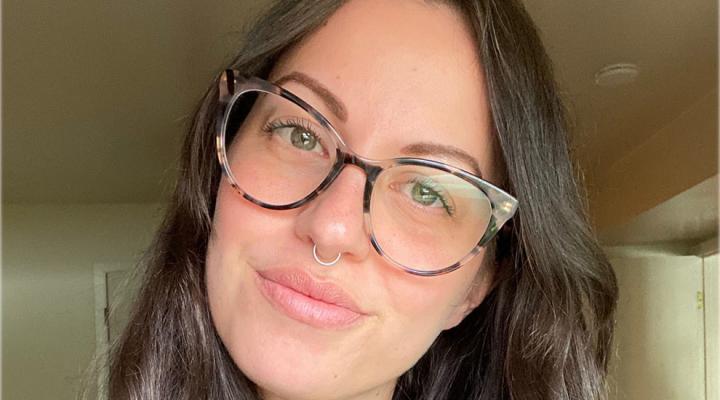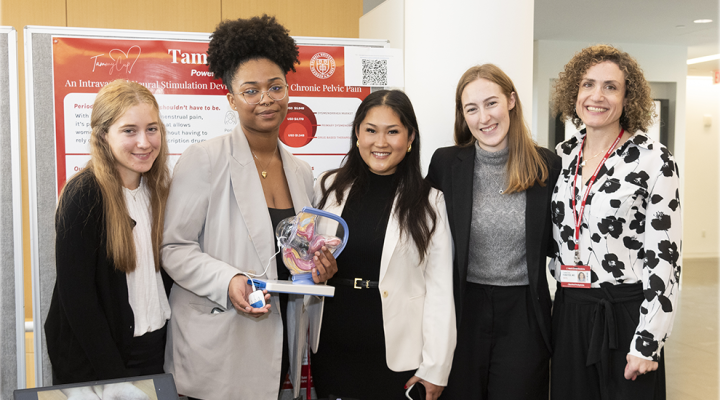The Meinig School of Biomedical Engineering proudly congratulates the five students who each won a 2016 National Science Foundation Graduate Research Fellowship.
Three fellows will study cancer. Johana Uribe, in the Reinhart-King Lab, will study the forces used by cancer cells to migrate from the primary tumor, investigating the role of matrix architecture and cell shape and size changes in metastatic cell migration. Lauren Hapach, also in the Reinhart- King Lab, will investigate intratumor heterogeneity by characterizing invasive and noninvasive cancer cell phenotypes in relation to their metastatic potential. And Monet Roberts, of the Pazseck Lab, will study the biophysical mechanisms involving the role of glycoproteins in breast cancer progression and metastasis.
Ruisheng (Rick) Wang, from the Erickson Lab, will work on developing the FeverPhone, a point-of-care platform for rapid detection of infectious diseases in low-resource settings. His effort will involve the design and development of novel multiplexed immunoassays, which will facilitate differential diagnosis of acute febrile illnesses such as dengue, malaria, and Zika.
Pablo Palomino, from the Donnelly Lab, will investigate the role of type 2 diabetes mellitus (T2DM) in altering bone quality by comparing cortical bone properties from T2DM and non-diabetic patients. Specifically, he will quantify nonenzymatic glycation of the collagen matrix, assess spectroscopic measures of bone composition, and examine the behavior of cortical microbeams in bending. This study will help to understand why T2DM patients fracture more often than non-diabetics with otherwise similar risk factors.
Congratulations also go to students receiving honorable mentions this year: Matthew Zanotelli (Reinhart-King Lab), Stephen Sloan (Bonassar Lab), Sarah Snyder (Putnam Lab), Shivem Shah (Singh Lab), Amanda Rooney (van der Meulen Lab), Yehudah Pardo (Ma/Luo Lab), Adam Munoz (Reinhart-King Lab), Zeinab Mohamed (King Lab), Nicole Diamantides (Bonassar Lab), Victor Aguilar (Cosgrove Lab), and Marysol Luna (Hernandez Lab).





